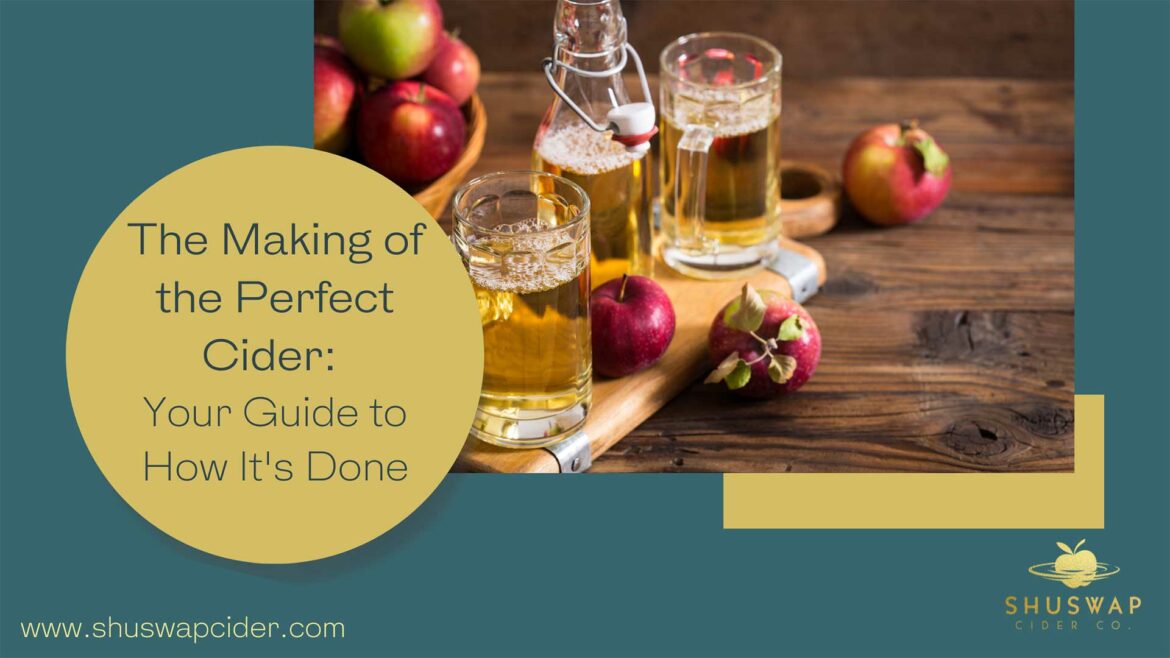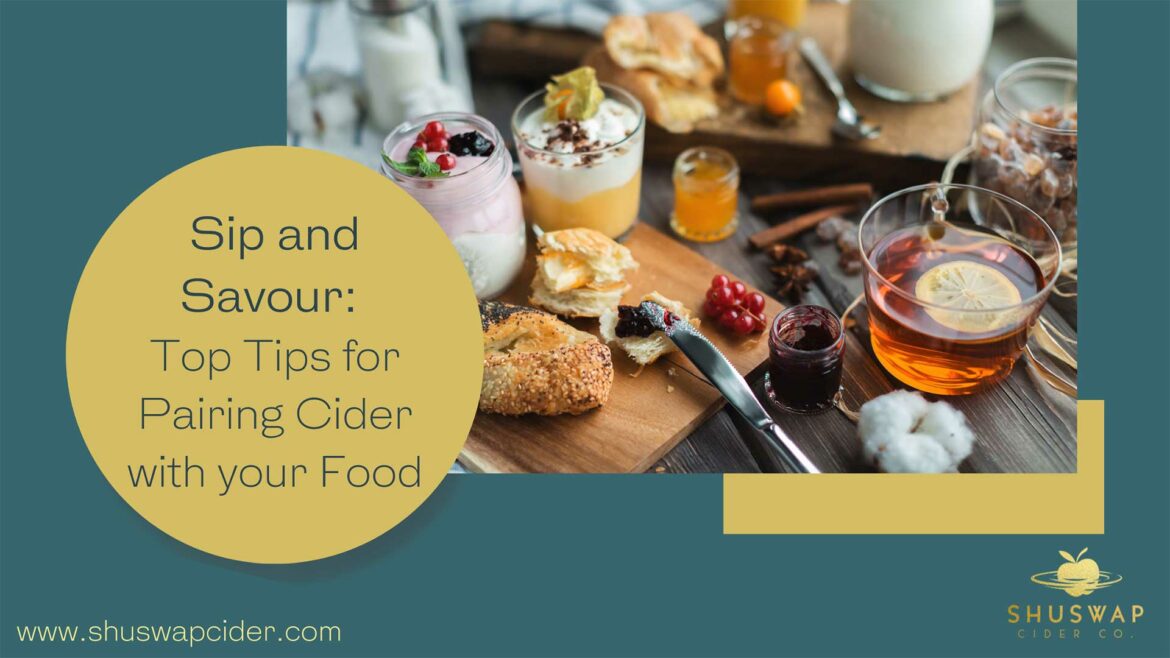The Making of the Perfect Cider: Your Guide to How It’s Done
Crafting the perfect cider can be an intricate process. Unlike the other big-name brands who may be producing in terms of profit, we pride ourselves on producing out of passion. That’s why every element of our cider-making practice is carefully considered to reflect who we are, and it all starts with exactly what is in the can.
The foundation of a good cider begins with sourcing local ingredients. Using products grown from our very environment is our favourite way to implement Shuswap personality directly into our product. There’s no better feeling than knowing that every sip supports local farmers and businesses.
Acknowledging and sharing the natural history behind the apples we source is another important aspect to our process. The apples grown in the Shuswap contain an important story which we hope to emulate through each unique blend.
And finally, upholding the mission of crafting with the highest quality standards, using delicacy, and patience, guarantees that all our hard work exceeds industry and client expectations. So, let’s delve into the cider making process a bit further.
Where do the ingredients for Shuswap Cider come from?
Each can of cider begins with the selection of quality ingredients. Our passion is to create distinctive blends that taste special and to come up with captivating fusions of flavours, with inspiration from our local farms. Luckily in British Columbia, there’s no shortage of exceptional harvests and choice ingredients cultivated throughout the province.
The Lavender Farm is just one example and one of our favourite Salmon Arm farms. These experts have been harvesting and processing lavender for years and have a wide selection of amazing homemade products. Once we discovered their bright lavender buds, we knew we had to use them in our very own Lavender Honey Cider.
Another amazing harvest comes out of Honey Onyx Apiary, a local bee farm from which we proudly source our honey ingredient. The Apiary has harvested honey off their farm in Falkland for over 5 years. They are a family-owned business with a wholehearted mission to raise happy, healthy bees and produce high-grade honey.
Regardless of whether it is herbs and liquid spices like lavender and honey, or blueberries and cherries sourced to make a bold cider blush; we take pride in knowing that each individual ingredient is carefully considered, homegrown, and hand-picked with pleasure.
What about the history behind the apples in Shuswap Cider Co. cider?
Once the ingredients have been selected, we take them directly from those neighbouring farms and pair them with the apples grown from our very own Shuswap trees. Many of our apples come from A & L Peterson Orchards, a local farm that has been growing fruit trees since 2007 and whose apple growing family history dates all the way back to 1911. Nurtured by fourth generation orchardist Allan Peterson, the apples that we pick today contain a deep-rooted history.
In the 1920’s the Shuswap area met the Golden Age of the apple; the climate had become ideal for orchardists, presenting a balance of sunshine and moisture so that little to no irrigation was required. The unique conditions created some of the most delicious apples in the world and resulted in an extremely high demand. The old popular paddle wheelers would stop along the lakeshore to gather boxes of apples by the ton and some eventually found their way to global markets in Great Britain, South America and even South Africa.
Today, we’re certain the apples are still just as delicious as they once were and embracing this history we strive to bring the Golden Age of the apple back to the Shuswap, this time through the form of our cider. We ferment using a blend of traditional bittersweet and bittersharp varietals, along with complimentary culinary apples, to create a brilliant balance of characteristics in each small batch. Plus, with approximately 6 apples in every can, you won’t be able to miss the distinct taste of the Shuswap in our ciders!
How are Shuswap Cider Co.’s ciders made?
To create this characteristic blend, the apples harvested from the orchard must undergo a series of steps before they wind up perfectly carbonated within our cans. The first step is to give them a good wash to remove leaves, twigs, insects and/or residues.
To remove the juice, the apples are then ground up into pulps and pressed. Various types of pulp mixtures may be pressed depending on which flavour of cider we intend to brew. To produce just one gallon of cider spirit, we typically press around 11-14 pounds of apples. We then take all that juice created out of the pressing, filter the pulp, and introduce it to the fermentation process.
The fermentation process is where our cider meets true science, and we see the chemical reaction between the natural sugars within the juice and yeasts resulting in alcohol and a bit of natural carbonation. Once we’re happy with this fermentation, we transfer our cider into a settling tank which allows it to clarify and age. To complete the process the spirit then gets filtered one last time before the desired carbonation is added and the delicious cider is distributed into our beautifully decorated cans.
From the ingredient production to selection, combination, and distribution we work hard to ensure that our best goes into our products. We do this by selecting only the highest-quality ingredients from our community farms and by working closely with the true experts in our area.
So now you know, when our delicious Shuswap Cider meets your hand, it’s not just a beverage that you’re holding; rather it’s the product of locally grown ingredients, and the work of local farmers, cider-makers, and distributors.


